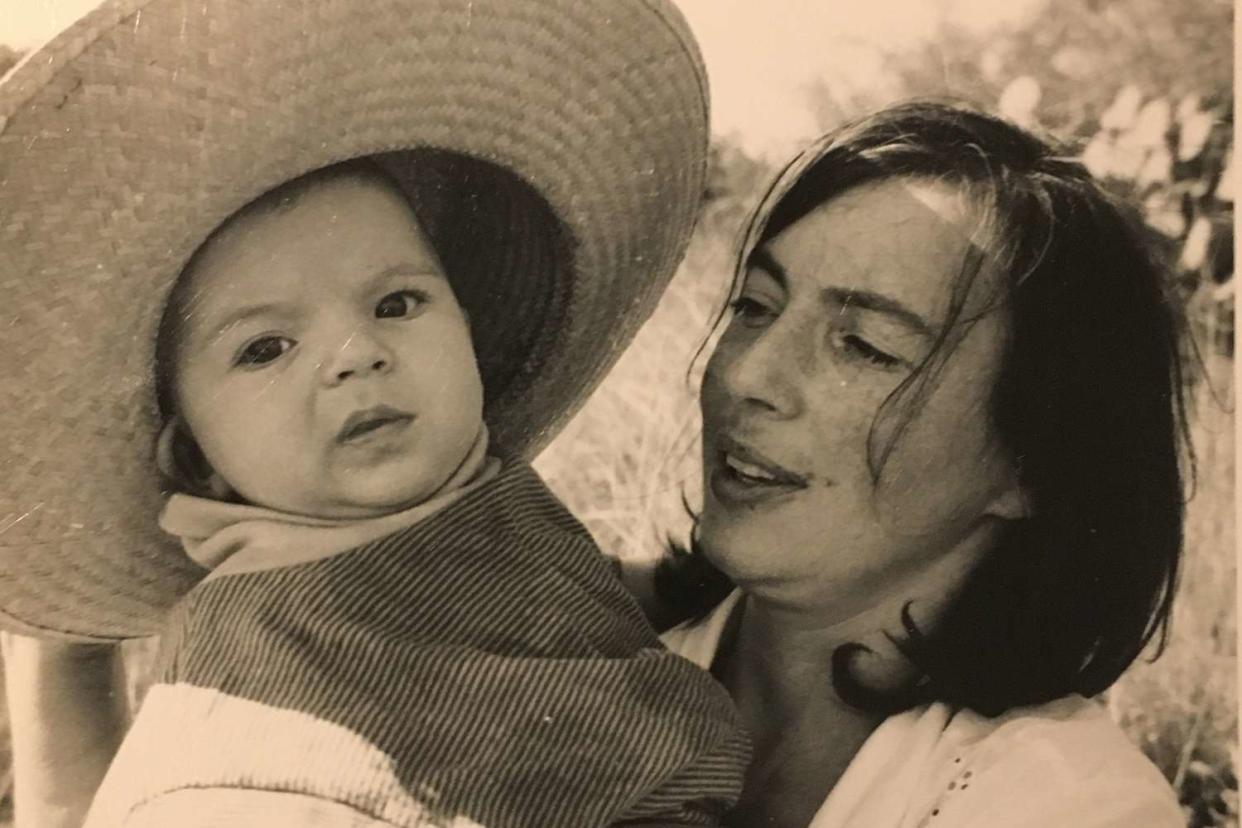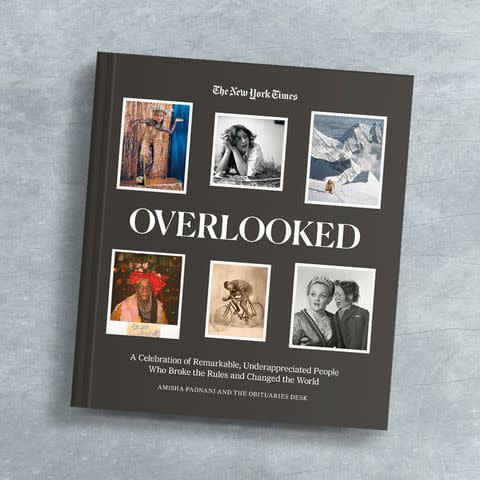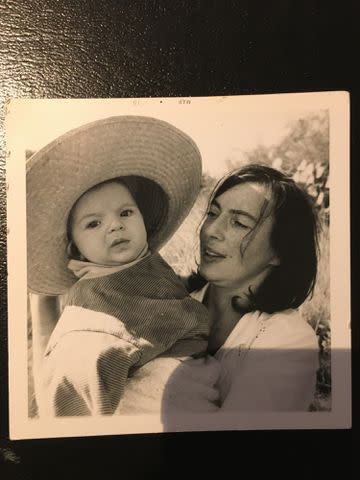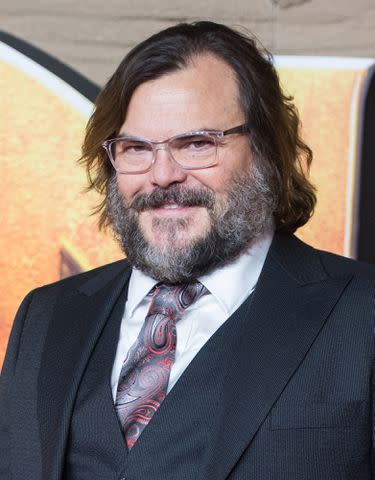See a New Photo of Jack Black with His Mother — and Learn More About Her Fascinating Story (Exclusive)
Black’s mother, aerospace engineer Judith Love Cohen, is featured in a book of obituaries for women and people of color previously unreported by ‘The New York Times’

In a photo published exclusively with PEOPLE, a two-year-old Jack Black is seen in the arms of his mother, Judith Love Cohen.
“This is an old scrapbook that Judy had that's now Jack's. But essentially it's just a scrapbook of a child growing up,” David Katz, Cohen’s third husband and Black’s stepfather, tells PEOPLE. “And I looked at all these pictures and I thought, ‘Ah, I like this one.’ ”
Cohen, who died in 2016 of cancer at age 82, lived a full and fascinating life, which included working as an aerospace engineer on life-saving projects for NASA, advocating for women in STEM and more. Her story is just one featured in Overlooked, a book by New York Times obituaries editor Amisha Padnani.
Published by Ten Speed Press on Nov. 14, Overlooked features obituaries, stories and photographs of women and people of color that were previously unreported by the newspaper.

The book is an expansion of Padnani’s Overlooked series for the New York Times, which was created in 2018 in response to reader questions about including more women and people of color in the obituaries section.
“It was for me, a very personal project,” Padnani tells PEOPLE. “As the daughter of Indian immigrants, I was taught to blend in, assimilate, work really hard, keep your head down, not really brag about success. And so you tend to just feel like, after a while, you're walking around invisible. And I really wanted to see more people like me represented in our section.”
The book features figures like investigative journalist Ida B. Wells and writer Sylvia Plath as well as Cohen.
Padnani says that it was only when she was editing the obituary, written by Shannon Hall, that she realized Cohen was Black’s mother. (Cohen had four children: Howard Siegel, Rachel Siegel and Neil Siegel from her first marriage to Bernard Siegel and Black from her second marriage to Thomas William Black.)
Her full obituary now opens with the story of Black’s birth. “The story begins by talking about how [Cohen] was about to give birth, but she had this pesky work problem she just couldn't solve. And so she brought her papers with her and wanted to figure it out,” Padnani says. “And then the next day, her son was born and there's Jack Black. So it's pretty remarkable how hardworking she was.”
Related: All About Jack Black's Parents, Judith Love Cohen and Thomas William Black

Cohen was born on August 16, 1933 to Jewish parents in Brooklyn, New York. Her parents left Russia for the United States before World War I began. She garnered an interest in STEM from her father, Maurice, who taught her geometry. Cohen, who went to Brooklyn College to study engineering, also balanced an interest in the arts with her education, dancing for the Metropolitan Opera’s ballet company.
Cohen was one of few female aerospace engineers during her career. She would go on to work on several NASA projects, including the Minuteman missile and the Apollo Abort Guidance System. The latter, which would help astronauts abort before a shuttle ran out of fuel, proved crucial during the 1970 Apollo 13mission, which attempted to reach the moon before an oxygen tank exploded. The program helped the crew return to safety.
“She would come home from work with a head full of steam — of ideas and passions,” Black says in the book. His mother was also supportive of him and his acting career. Katz, who married Cohen in the 1980s, says Black and his mother had a “really good relationship.”
Related: Apollo 13 Crew Overcame Incredible Obstacles 50 Years Ago: Here Are Their Quotes on Survival

Cohen remained an advocate for women’s rights. She made jobs more accessible for women by encouraging the TRW to post job listings with formal descriptions within the company. After retiring in 1990, she wrote a children’s book titled You Can Be a Women Engineer. Cohen and Katz created their own publishing company, Cascade Press, when they couldn’t find a publisher for the book. The company published titles about women in STEM, with Cohen writing the books and Katz illustrating them.
Never miss a story — sign up for PEOPLE's free daily newsletter to stay up-to-date on the best of what PEOPLE has to offer, from juicy celebrity news to compelling human interest stories.
“I think it was just so ahead of its time, the books,” Padnani says. “‘You can be a woman engineer, you can be this, you can be that.’ I think that's a lot of what we're seeing today. But she did that many, many years ago. And so I think it was just really forward-thinking.”
For Katz, Cohen’s legacy continues to reach far and wide.
“I don't know what to say about her because there's so many facets of her,” he says. “She was a good writer, a good mother, a good wife, and just a really great engineer. And she just did many things really well. When she decided to do something, she put all her heart and soul into it. And because of her great intelligence and her discipline, she was able to do it well.”
Overlooked is now available where books are sold.
For more People news, make sure to sign up for our newsletter!
Read the original article on People.
